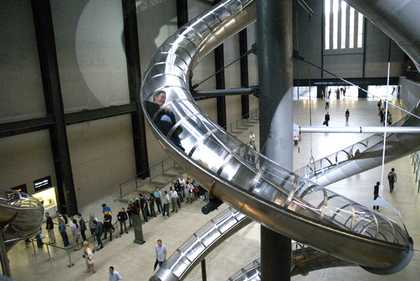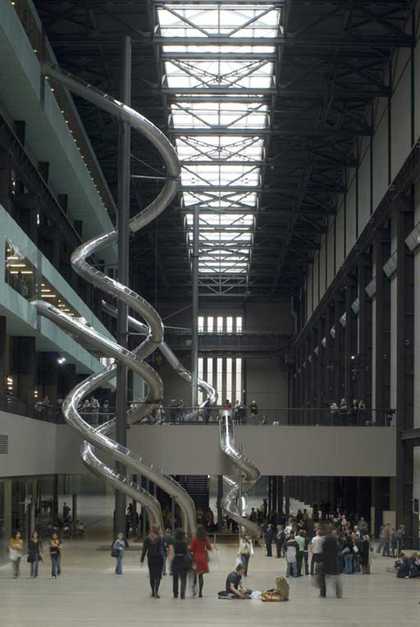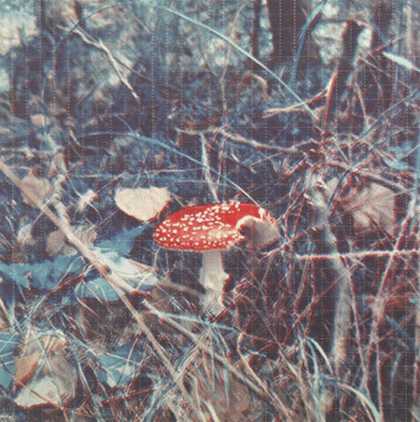For Carsten Höller, the experience of sliding is best summed up in a phrase by the French writer Roger Caillois as a 'voluptuous panic upon an otherwise lucid mind'. The slides are impressive sculptures in their own right, and you don't have to hurtle down them to appreciate this artwork. What interests Höller, however, is both the visual spectacle of watching people sliding and the 'inner spectacle' experienced by the sliders themselves, the state of simultaneous delight and anxiety that you enter as you descend.
Vox Pops: Tate visitors
To date Höller has installed six smaller slides in other galleries and museums, but the cavernous space of the Turbine Hall offers a unique setting in which to extend his vision. Yet, as the title implies, he sees it as a prototype for an even larger enterprise, in which slides could be introduced across London, or indeed, in any city. How might a daily dose of sliding affect the way we perceive the world? Can slides become part of our experiential and architectural life?
Höller has undertaken many projects that invite visitor interaction, such as Flying Machine 1996 that hoists the user through the air, Upside-Down Goggles 1994/2001 that modify vision, and Frisbee House 2000, a room full of Frisbees. The slides, like these earlier works, question human behaviour, perception and logic, offering the possibility for self-exploration in the process.



